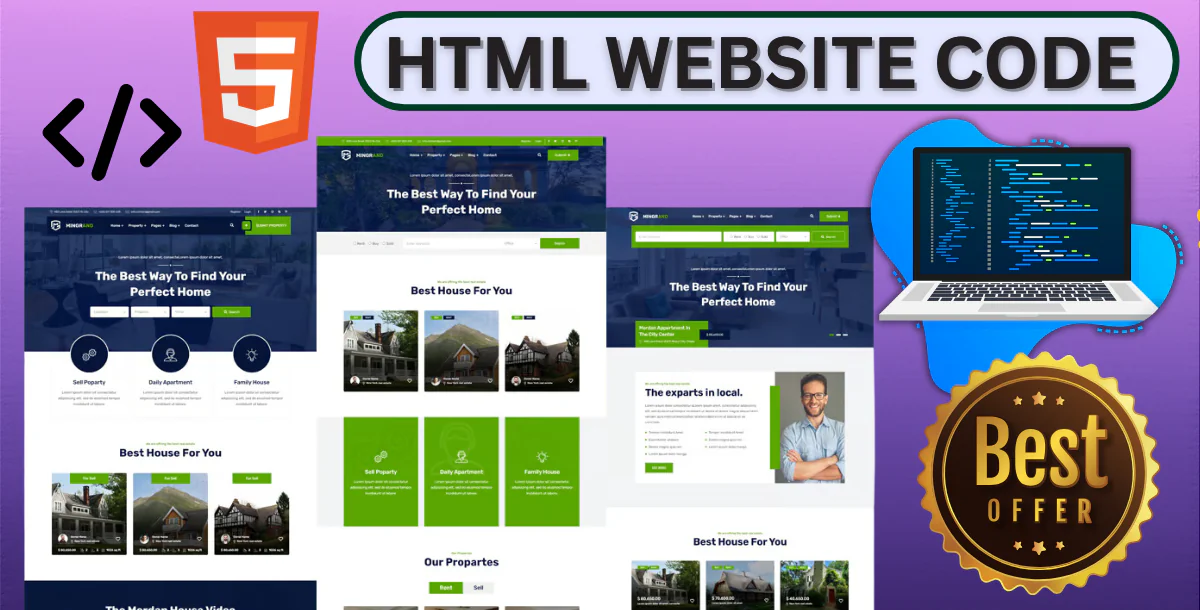
Many Website Templates Can Be Created with the Help of HTML Website Code
HTML (Hypertext Markup Language) is the foundation of website development, serving as the backbone for creating and structuring web pages. With HTML, developers can create diverse website templates that cater to various purposes and industries, such as business websites, personal portfolios, e-commerce platforms, blogs, and more. The versatility and simplicity of HTML make it an ideal choice for designing templates that are not only visually appealing but also functional and user-friendly.
What Are Website Templates?
Website templates are pre-designed web page layouts that provide a structure for building a website. They save time and effort by offering ready-made designs that can be customized to suit specific needs. HTML templates are particularly popular because they are lightweight, easy to code, and compatible with all modern browsers.
Why Use HTML for Website Templates?
HTML offers several advantages for creating website templates:
Types of Templates You Can Create with HTML
Business Templates: Business website templates are designed to showcase company profiles, services, and contact information. They typically include sections for an "About Us" page, a portfolio, and a contact form.
E-Commerce Templates: These templates focus on product display, shopping carts, and payment gateways. They often integrate responsive grids for product galleries and user-friendly navigation.
Portfolio Templates: Portfolio templates are ideal for freelancers, artists, and professionals who want to showcase their work. They often feature image galleries, project descriptions, and downloadable resumes.
Blog Templates: Blog templates are structured to display articles in an organized format, with sections for recent posts, categories, and user comments.
Landing Page Templates: Designed for marketing campaigns, these templates focus on call-to-action buttons, product highlights, and lead generation forms.
Essential Features of HTML Website Templates
Responsive Design: Modern HTML templates are designed to be responsive, ensuring that they look great on desktops, tablets, and smartphones.
SEO Optimization: Clean HTML code helps improve website visibility in search engine results by optimizing meta tags, headings, and alt attributes for images.
User-Friendly Navigation: HTML templates include intuitive navigation menus that enhance user experience.
Interactive Elements: HTML, combined with JavaScript, enables the inclusion of sliders, pop-ups, and animations.
Cross-Browser Compatibility: HTML templates work seamlessly across all major web browsers, ensuring consistent user experience.
Conclusion
HTML is a powerful tool for creating a wide range of website templates, from simple single-page designs to complex multi-page layouts. By integrating HTML with CSS for styling and JavaScript for interactivity, developers can build templates that are visually appealing, functional, and responsive. Whether for personal use or professional projects, HTML templates offer a reliable and efficient way to design websites that cater to diverse needs and industries.
Published:
Nov 21, 2024 02:22 PM
Version:
v1.0
Category:
Code:
Html website codeHigh Resolution:
YesFiles Included: